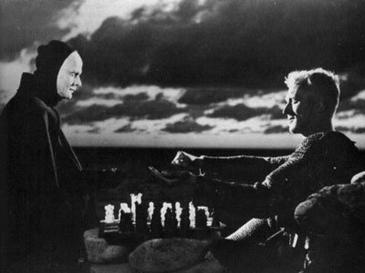One thing that happens every summer in Sweden, especially after the so-called mid-summer day, is that the country closes down. It is very hard to do anything during the summer, from fixing your car to seeing a doctor.
But even dying is not advisable during the summer.
Why? Because there is nobody around to bury the dead body.
Here is the story: three years ago, the (Swedish) husband of a woman (whom we know) died suddenly in the middle of the summer by a wasp sting. This was very unfortunate and very sad. Very unexpected also. Indeed, some people may die from insect venom anaphylaxis (severe allergic reaction). These fatal allergic reactions frequently, but not always, occur in people who have had a previous allergic reaction to the same type of insect.
Once the first shock passes, the dead person's wife tried to arrange for a funeral. Funeral offices abound in Sweden and, as I explained in an earlier posting, they have a very different look than in other countries because they display their products (coffins, urns for ashes, etc.) in their windows. In the previous posting, I also analyzed the concept of a funeral office magazine which is issued at the hefty price of 9.50 USD. We receive it for free. And I described its contents. Therefore, funeral offices exist and are very well-organized. They even produce software for the management of death-related operations. (See my previous posting.)
However, they apparently all (or almost all) close down during the summer, so much so, that the unfortunate woman could not find any funeral office in Stockholm or in a nearby area in order to bury her husband. She searched and searched and nothing was available. Instead, she was told to wait until September, to have the body frozen until they reopen in September and resume business as usual. To be accurate, I believe that there are some funeral offices open but they work at a very low pace during the summer so they're fully booked. Hence the waiting time.
It appears, therefore, that dying during the summer should be avoided in Sweden. Or, if one expects to die, he or she should make a reservation with a funeral office a few months in advance. Perhaps this is why the funeral office magazines are being sent out: as a reminder to reserve a spot should you plan to die during the summer.
But even dying is not advisable during the summer.
Why? Because there is nobody around to bury the dead body.
Here is the story: three years ago, the (Swedish) husband of a woman (whom we know) died suddenly in the middle of the summer by a wasp sting. This was very unfortunate and very sad. Very unexpected also. Indeed, some people may die from insect venom anaphylaxis (severe allergic reaction). These fatal allergic reactions frequently, but not always, occur in people who have had a previous allergic reaction to the same type of insect.
Once the first shock passes, the dead person's wife tried to arrange for a funeral. Funeral offices abound in Sweden and, as I explained in an earlier posting, they have a very different look than in other countries because they display their products (coffins, urns for ashes, etc.) in their windows. In the previous posting, I also analyzed the concept of a funeral office magazine which is issued at the hefty price of 9.50 USD. We receive it for free. And I described its contents. Therefore, funeral offices exist and are very well-organized. They even produce software for the management of death-related operations. (See my previous posting.)
However, they apparently all (or almost all) close down during the summer, so much so, that the unfortunate woman could not find any funeral office in Stockholm or in a nearby area in order to bury her husband. She searched and searched and nothing was available. Instead, she was told to wait until September, to have the body frozen until they reopen in September and resume business as usual. To be accurate, I believe that there are some funeral offices open but they work at a very low pace during the summer so they're fully booked. Hence the waiting time.
It appears, therefore, that dying during the summer should be avoided in Sweden. Or, if one expects to die, he or she should make a reservation with a funeral office a few months in advance. Perhaps this is why the funeral office magazines are being sent out: as a reminder to reserve a spot should you plan to die during the summer.
















































